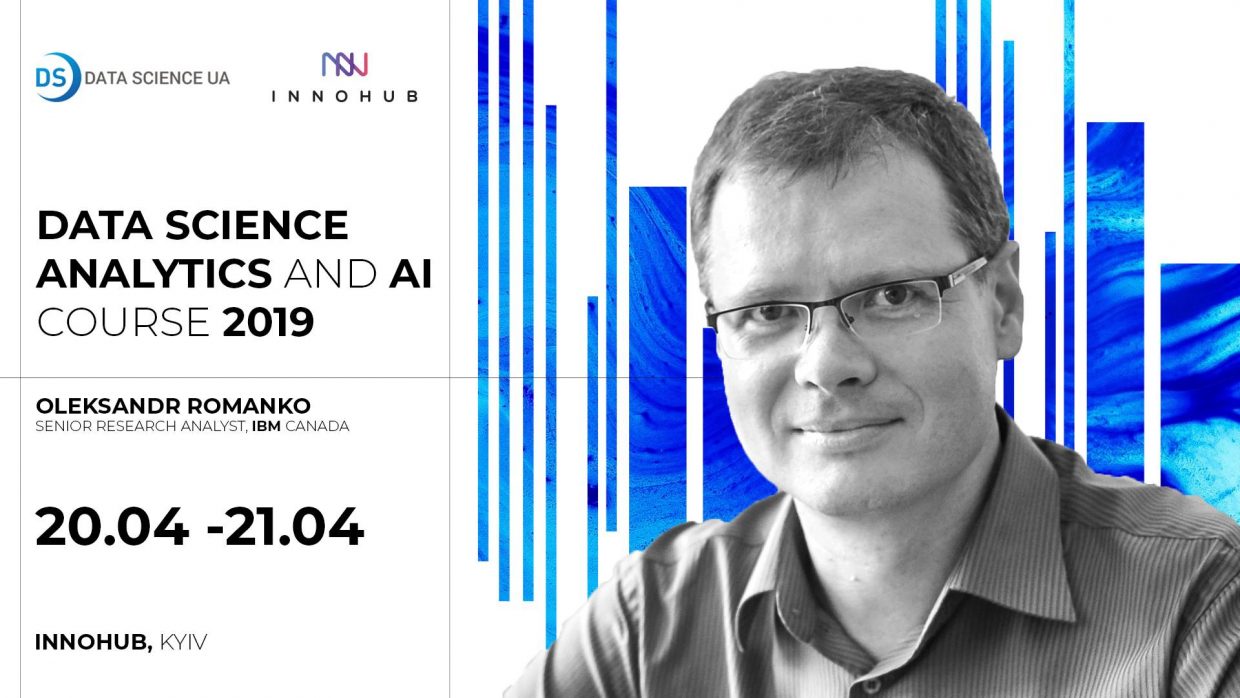On April 20 and 21, Data Analytics and AI 2019 course will take place. During the course Oleksandr Romanko will talk about the basics of data analysis, modeling, and IBM AI experience.
Oleksandr Romanko is a Senior Researcher at IBM Canada, lecturer at the University of Toronto and UCU (Ukrainian Catholic University) and KSE.
Oleksandr received a Ph.D. and Master’s Degree in Computer Science at McMaster University (Canada), a Master’s degree in economics at Karlovo University (Czech Republic) and a specialist diploma from Sumy State University.

![[:en]nika[:]](https://data-science-ua.com/wp-content/uploads/2019/10/veronica-tamayo-flores-150x150.png)
![[:en]savsunenko[:]](https://data-science-ua.com/wp-content/uploads/2019/10/OLEKSANDR-SAVSUNENKO-150x150.png)
![[:en]Vasyl Sergienko[:]](https://data-science-ua.com/wp-content/uploads/2019/10/Vasyl-Sergienko-150x150.png)